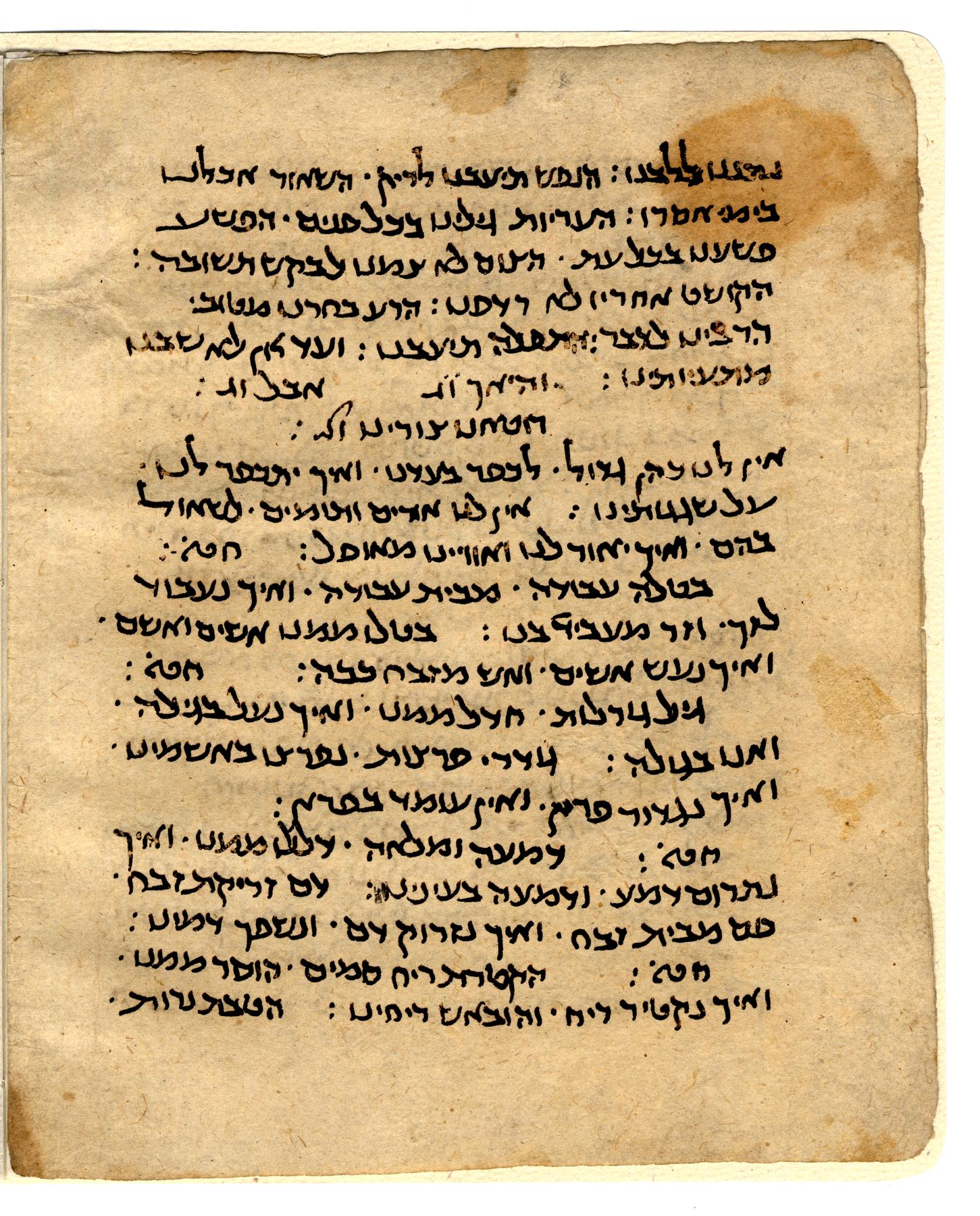Yose (son of Yose) is the first Jewish poet from late antiquity known to us by name and one of the finest Hebrew poets of all times. Yose was born sometime in the early fifth century C.E., in Palestine - most probably in the Galilee - and was among the first to introduce poetry to the synagogue services. This liturgical poetry, also know as Piyyut (a Greek loan-word), gradually gained its cultural prestige and became - by the mid seventh century - a hallmark of the Palestinian liturgical rite. A manuscript in the Genizah collection of the Center for Advanced Judaic Studies (Halper 247, folio 2v) preserves a beautiful composition that exemplifies Yose's artistry. The poem En Lanu Kohen Gadol (We Have no High Priest) - that was chanted on Yom Kippur - seeks to emphasize the religious crisis that followed the destruction of the Jerusalem temple. Yose enumerates the lost rituals of the temple and laments Israel's downfall in a brilliant poetic fashion, as the following lines demonstrate:
We have / no high priest // how shall we be pardoned / for our transgression?
The temple service has been eliminated // how shall we serve God while strangers rule over us?
There are no more / lamb sacrifices // how shall we immolate and Jerusalem is destroyed?
Prayer has ceased in the house of prayer // how shall we offer prayers if God rejects them?
We have sinned - Almighty, forgive us, our Creator!
